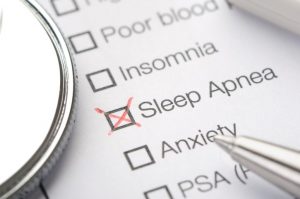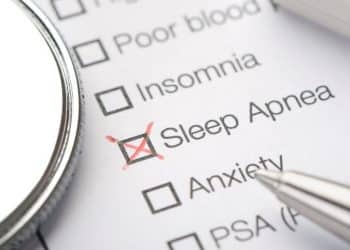
Your body is a machine that depends on every system to work well with one another, in order to keep your body working properly. When one system is not functioning properly, it causes stress on the other systems of your body. Ultimately, this causes that system to malfunction. No two systems are more closely dependant upon each other than the respiratory and circulatory systems.
When you have sleep apnea, your body is deprived of oxygen for a short period of time. Over long periods, these small amounts of time add up, causing damage to your heart. If left untreated, sleep apnea can play a large role in hypertension, heart failure, atrial fibrillation, and other arrhythmias. All of this puts the individual at a greater risk of either a heart attack or stroke.
How Pulmonologists Treat Sleep Apnea
Most cases of sleep apnea can’t be traced to a particular cause, although there are factors that increase your chances. For this reason, treatment is based on keeping the airway open while the individual sleeps. There are several ways this can be done.
CPAP
This therapy involves wearing a face mask that is hooked up to oxygen. The oxygen flows at a steady pressure, gently forcing the person’s airway open at all times.
Airway Pressure Devices
These devices also work to keep the airway open so that oxygen can get through. These devices vary and are often tolerated well when the CPAP machine feels intrusive.
Mouthpieces
Specially molded mouthpieces similar to those worn by sports players are used at night. These mouthpieces work well for people who have some deformity in the jaw or have trouble with their tongue rolling backward and blocking the airway.
Surgery
This is often the last resort and is only used when there is some physical reason that is causing the blocked airway that can’t be corrected with a less-invasive device.
Whatever the treatment method, the doctor will regularly monitor your heart and blood pressure to make sure no damage was done during the time before treatment. In this way, any problems can be caught early and treated.
Schedule An Appointment Today
If you are experiencing any of the symptoms of sleep apnea such as excessive daytime sleepiness or frequently waking up to feel like you are choking, contact us now for a sleep assessment. With over three decades of working in the field, Dr. Marc Bowen will assess you and help you determine the best course of action to keep your entire system working the best it can.

